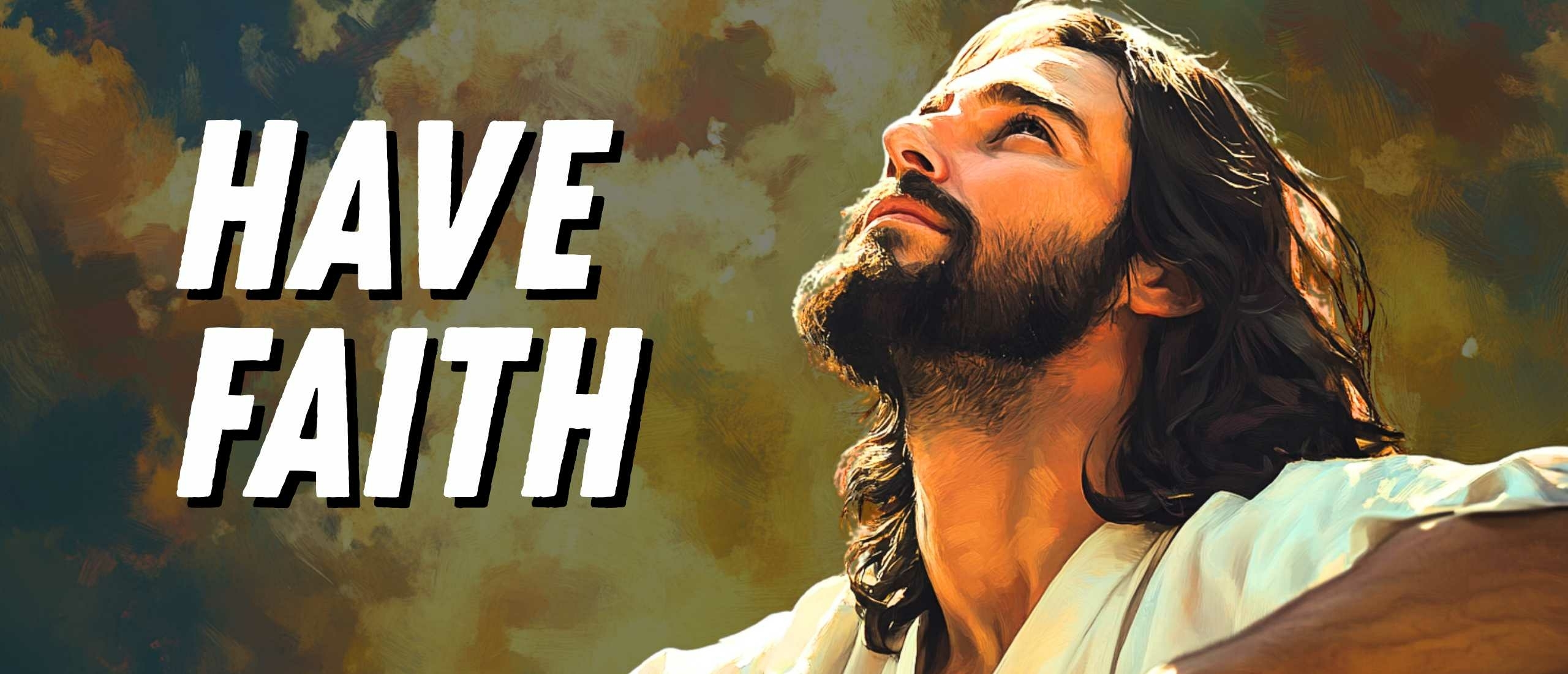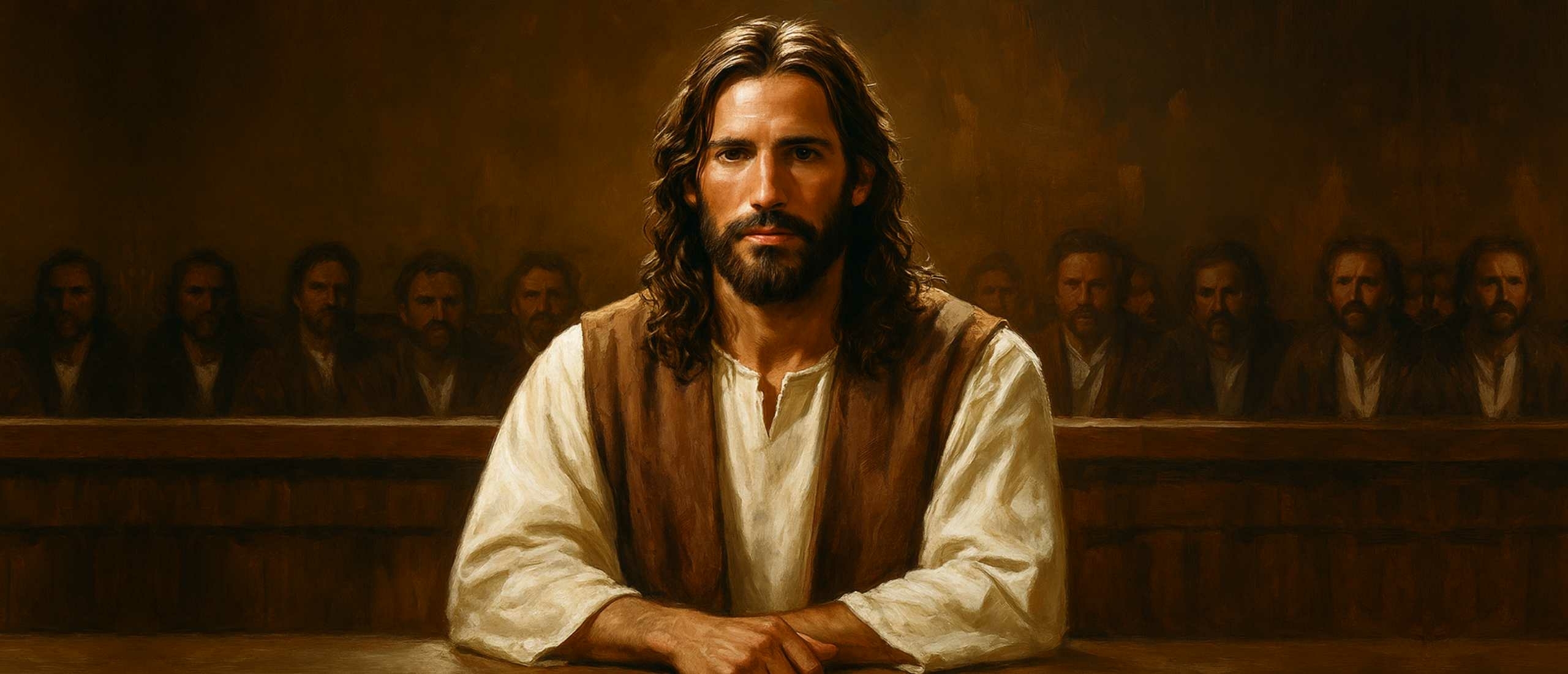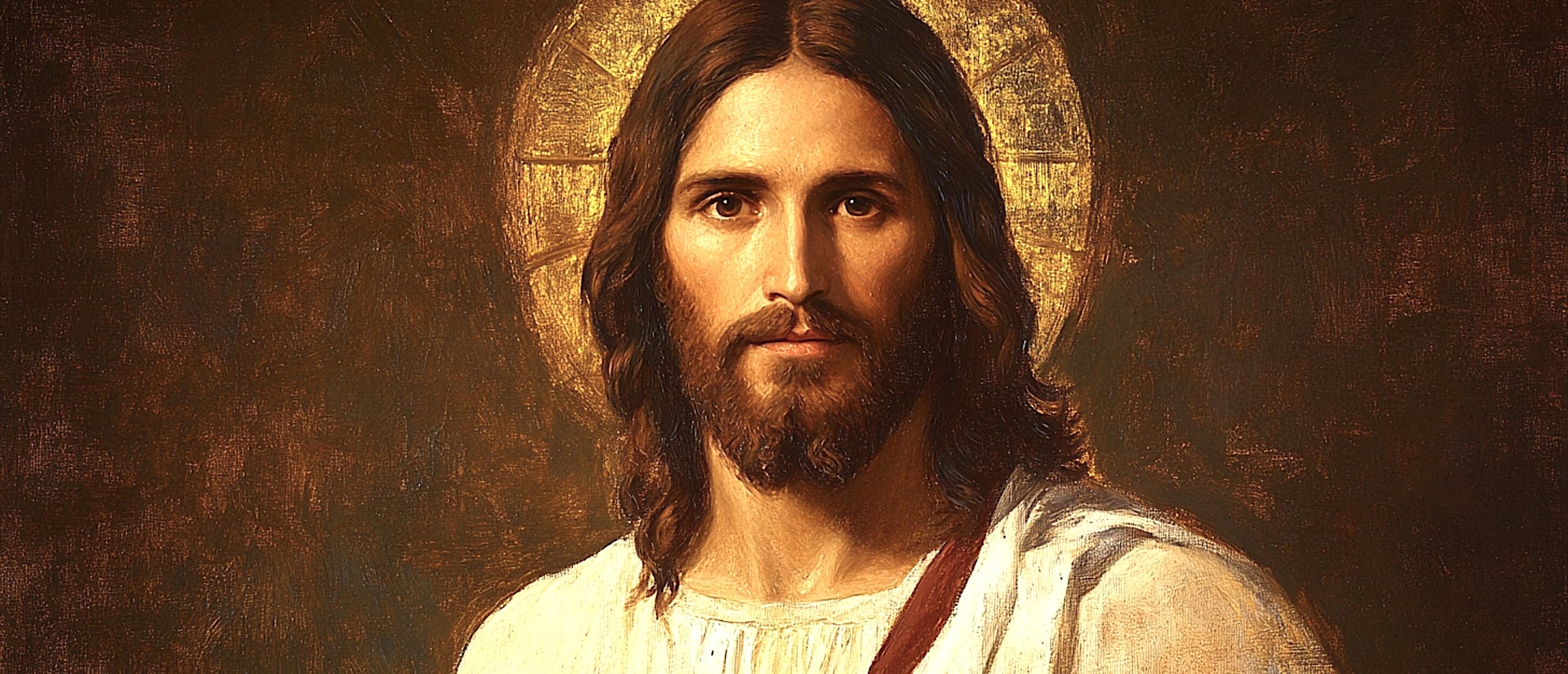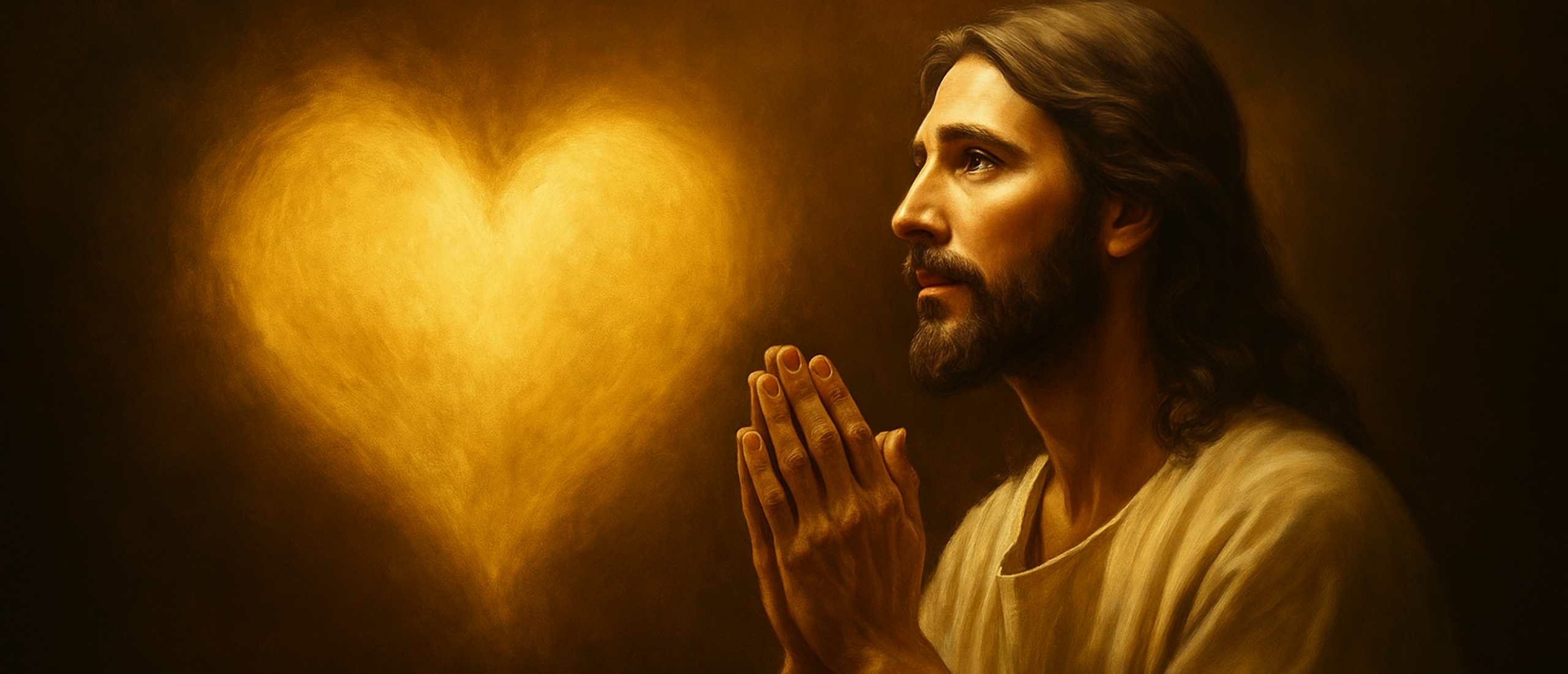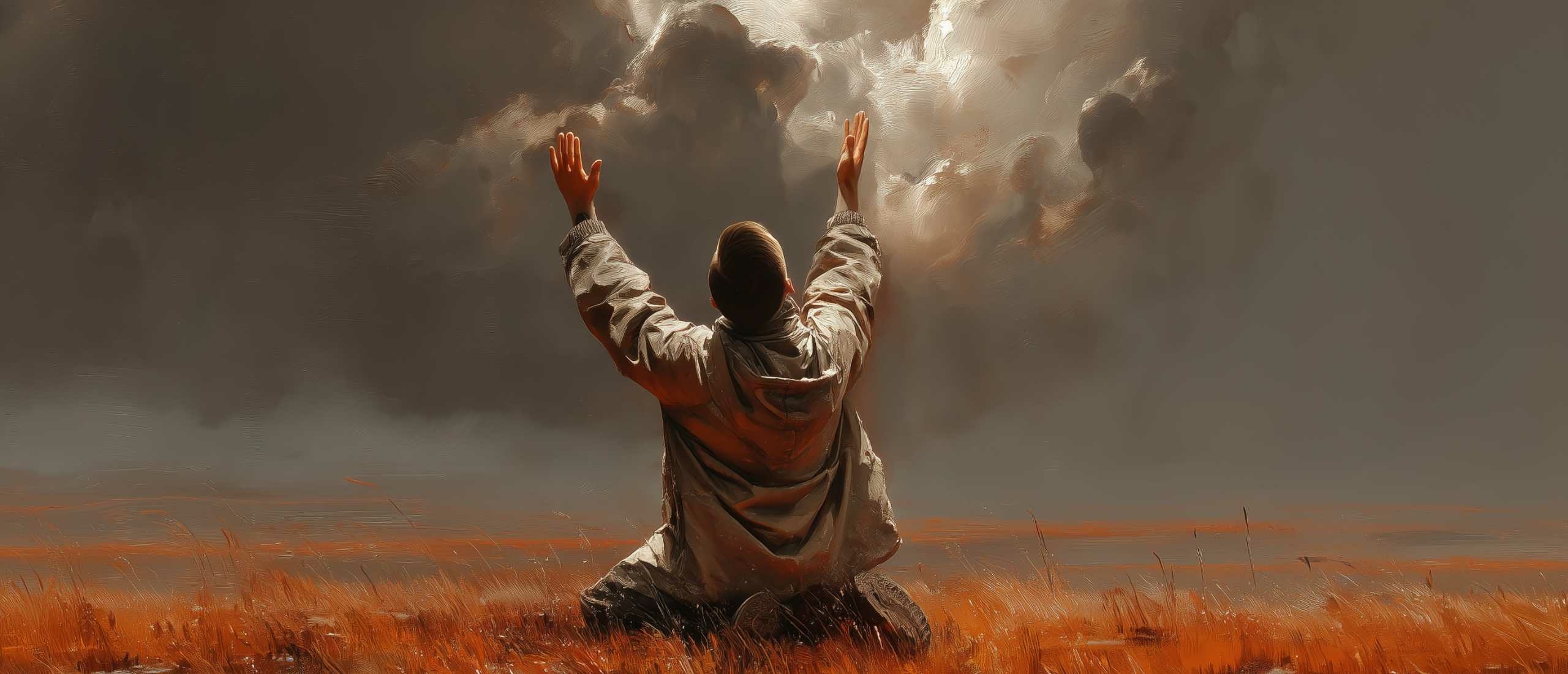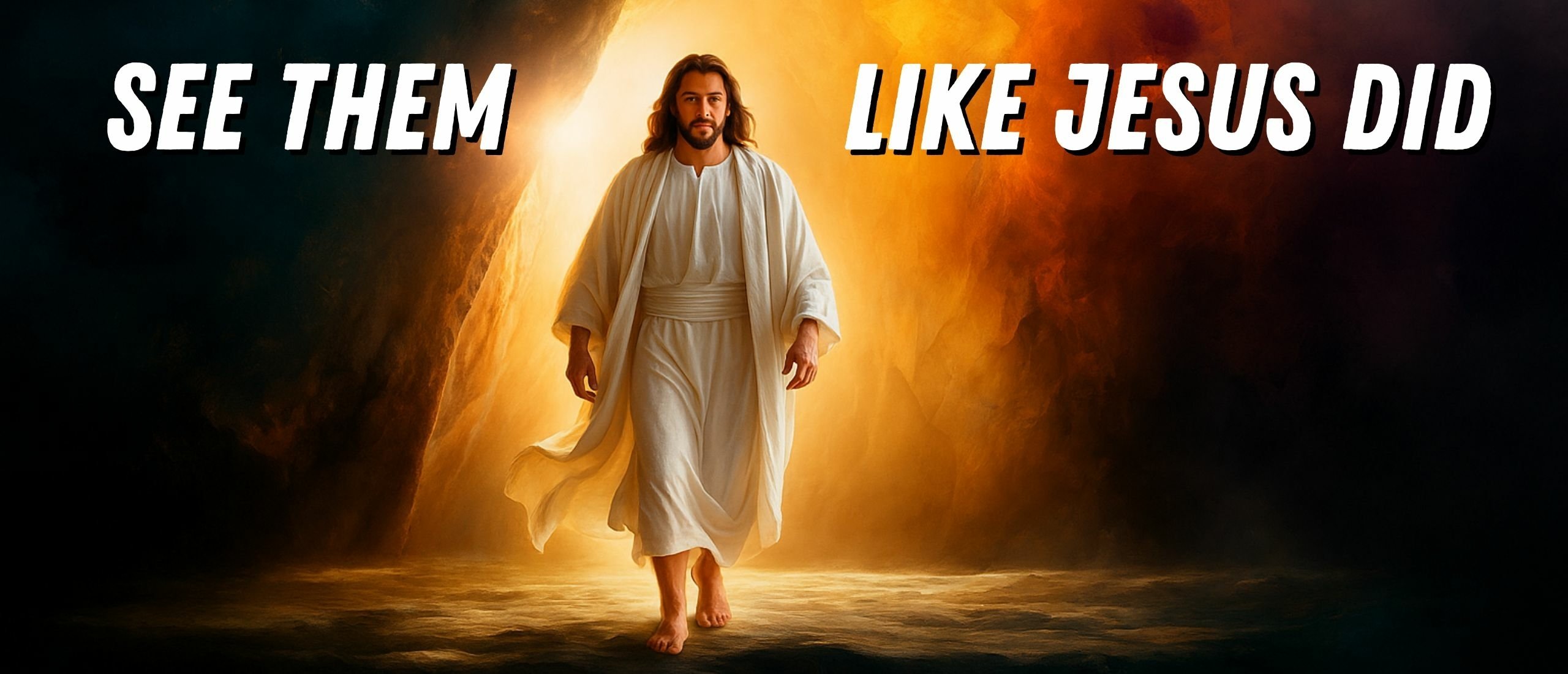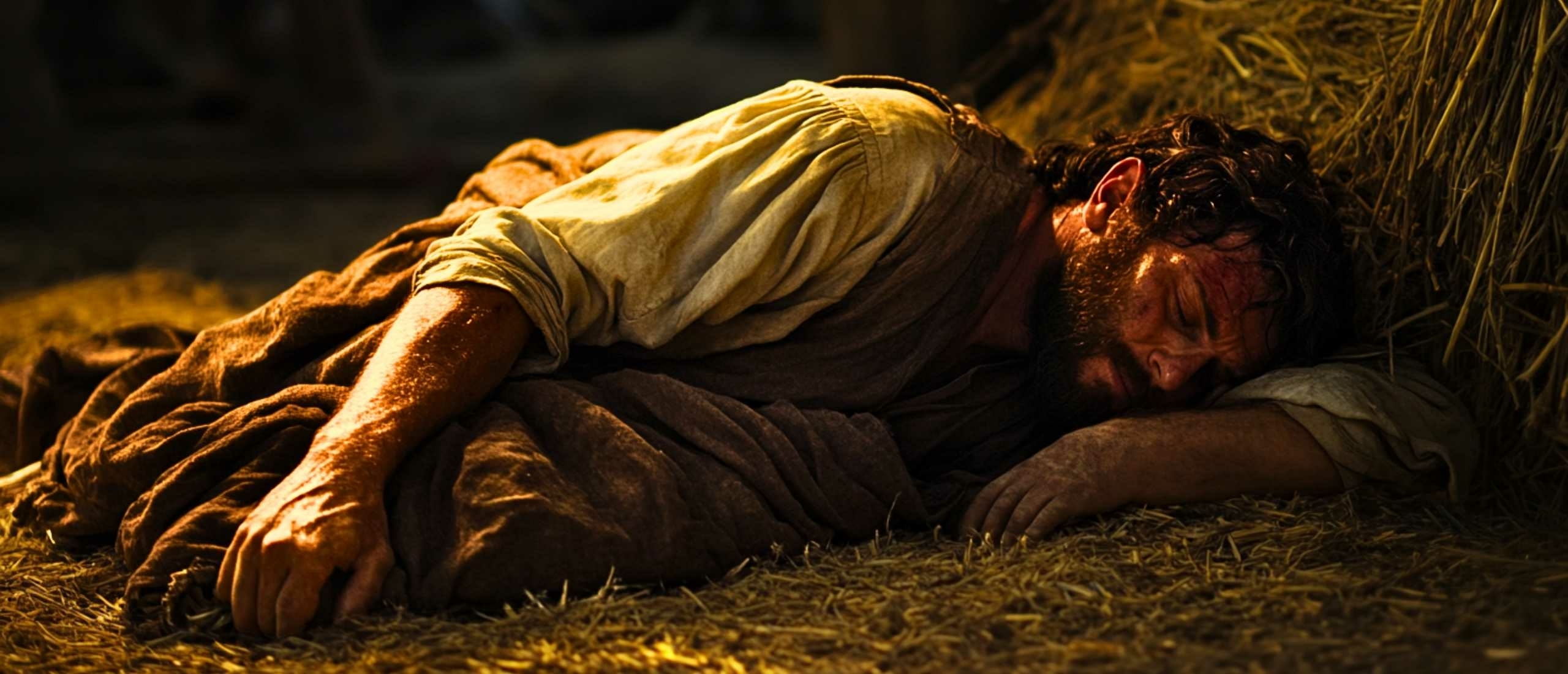
When was the last time you truly slowed down? Not just a quick break between tasks, but a real pause, where you stepped back, breathed, and asked yourself, Why am I doing all this?
Most people are caught in a cycle of endless work, rushing from one responsibility to another. Routines are useful, but if we're not careful, we become slaves to them. Instead of using routines to serve us, we start living for the routine itself. But here's something that might surprise you, rest isn't a luxury. It's a command from God.
"Since the promise of entering His rest still stands, let us be careful that none of you be found to have fallen short of it."(Hebrews 4:1)
God designed rest as a gift, not a burden. And today, we're going to talk about why investing in yourself is not only important, but necessary.
The Exhaustion Trap
Let me tell you a story. There was a man; let's call him David. He was the definition of hard work. He had a successful career, a growing family, and a long list of responsibilities. From the moment his alarm buzzed in the morning, he was on the move. His day was planned down to the minute, meetings, calls, errands, tasks. He told himself that if he just worked harder, stayed up later, and pushed through the exhaustion, he would eventually reach a point where he could finally relax. Just a little more effort, and I'll have time to slow down, he thought. But that day never came.
One afternoon, David sat at his desk, staring at his computer screen. His body ached, his head pounded, and his mind felt foggy. He had a mountain of unfinished work in front of him, yet he couldn't focus. He had poured everything into his job, his commitments, and even his ministry, but now, he felt empty. And then it hit him: he was exhausted... but he didn't even know why.
Does this sound familiar? How often do we find ourselves running on fumes, pushing through life as if we're machines that never need to stop? Our culture glorifies busyness. Note: it sounds a lot like business, and we love the material profits it brings. So, we wear exhaustion like a badge of honor, as if being constantly overwhelmed somehow proves our worth.
We tell ourselves, Rest is for later. I'll slow down once I achieve more, once I reach my goals, once I take care of everyone else. But here's the problem. When you never stop, you start to lose sight of why you're doing it all in the first place. You wake up, go through the motions, check off your tasks, and then do it all over again the next day. Yet deep down, you feel drained, disconnected, and unfulfilled. You might even ask yourself, Is this really how life is supposed to be?
Understanding the Real Cost of Burnout
That's the exhaustion trap. It convinces you that rest is a luxury you can't afford. That slowing down is for later, after you've accomplished enough. But let me ask you this: When is enough... enough?
Think about your phone. You charge it every night so it's ready for the next day. What happens when you don't? The battery drains. It slows down. Eventually, it shuts off completely. Now, imagine if you treated your phone the way you treat yourself. Imagine never giving it time to recharge, expecting it to keep running at full speed without ever being plugged in. That would be ridiculous, right? But that's exactly what so many of us do to our bodies, minds, and spirits.
We keep pushing forward, ignoring the warning signs, and convincing ourselves that burnout is just part of life. Is it, really? God never designed us to live like this. From the very beginning, He created rest as a vital part of life. He built it into the rhythm of creation, not as a suggestion, but as a necessity.
"Since the promise of entering His rest still stands, let us be careful that none of you be found to have fallen short of it."(Hebrews 4:1)
Did you catch that? Falling short of God's rest is something we should be careful to avoid. That means it's not just a good idea; it's something God takes seriously. Because He knows what happens when we ignore rest. He knows the damage it does to our bodies, our minds, our relationships, and even our faith.
The Consequences of Ignoring Rest
And yet, we keep running ourselves into the ground, thinking that we're doing the right thing. If you don't make time to rest, life will eventually force you to. Whether it's through burnout, anxiety, illness, or sheer exhaustion, your body and mind will eventually shut down if you refuse to invest in yourself.
The physical consequences of chronic exhaustion are well-documented. Your immune system weakens, making you more susceptible to illness. Your cognitive function declines, affecting your ability to make good decisions. Your emotional regulation suffers, making you more irritable and less patient with those you love. Your spiritual sensitivity diminishes, making it harder to hear God's voice and feel His presence.
But perhaps most tragically, when we operate from a place of constant depletion, we rob ourselves and others of our best. We show up physically, but we're not present. We go through the motions, but we lack the energy and enthusiasm that make life meaningful. We serve others, but we do so from obligation rather than overflow.
So let me ask you again, when was the last time you truly slowed down? Not just a quick break between tasks, not just scrolling on your phone for five minutes, but real rest; where you stepped back, breathed deeply, and allowed yourself to recharge? Because if it's been too long, then maybe it's time to break free from the exhaustion trap.
God's Design for Rest
Have you ever thought about the fact that God, who never grows tired or weary, chose to rest? In Genesis, after creating the heavens and the earth, God did something remarkable. On the seventh day, He stopped. He rested. And He called that day holy. Now, think about that for a second. The God who spoke the universe into existence, who set the stars in place and breathed life into humanity, didn't need rest. He wasn't exhausted. Yet, He chose to rest, not because He needed it, but because He was setting a pattern for us to follow.
This wasn't just a nice suggestion or a helpful hint. God was establishing a fundamental rhythm for human life. He was showing us that rest is so important that He built it into the very fabric of creation. The pattern of work and rest, of activity and restoration, of productivity and reflection, this is how God designed life to be lived.
Fast forward to the Israelites. When God led them out of slavery in Egypt, He gave them the Ten Commandments, and right in the middle of that sacred list, He included this: "Remember the Sabbath day by keeping it holy. Six days you shall labor and do all your work, but the seventh day is a Sabbath to the Lord your God." (Exodus 20:8-10)
God wasn't just giving them a break. He was teaching them a completely new way of life. They had just come from Egypt, where they were forced to work without rest, treated as nothing more than tools for Pharaoh's empire. Slaves don't get rest. But free people do. The Sabbath was God's way of reminding them: You are not slaves anymore.
Jesus' Example of Rest
And today, that message is still true for us. Even Jesus, the Son of God, the one who came to carry the weight of the world, took time to rest. Throughout His ministry, Jesus was constantly surrounded by people. Crowds pressed in, the sick reached out for healing, and the disciples had endless questions. He had every reason to stay busy. There was always more work to do.
And yet, Jesus often withdrew to quiet places to pray. One of the most powerful examples of this is found in Mark 6. After the disciples had been out preaching, healing, and ministering, they came back to Jesus excited but exhausted. Here's what Jesus told them: "Come with me by yourselves to a quiet place and get some rest." (Mark 6:31) So they got into a boat and left the crowds behind.
Now, let's pause here. Jesus knew their work was important. He knew people still needed healing, still needed teaching. But He also knew that if His disciples didn't take time to rest, they wouldn't have anything left to give. He didn't say, "Push through! Keep going! The work is too important to stop!" No, He said, "Come away with me. Rest."
This teaches us something profound about the nature of ministry and service. The work of God is important, but it's not more important than the workers. God doesn't want us to burn ourselves out in His service. He wants us to serve from a place of strength, joy, and overflow, not from depletion and obligation.
Rest as Spiritual Investment
Now, rest isn't just about taking a break from work. It's about investing in your relationship with God. Jesus didn't just retreat to rest, He retreated to reconnect with His Father. He spent time alone in prayer, away from the noise, strengthening His spirit. And if Jesus; who was fully God and fully man, needed that, how much more do we?
The world will tell you that rest is for the weak, that slowing down means falling behind. But God tells us the opposite: "Be still, and know that I am God." (Psalm 46:10) "Come to me, all you who are weary and burdened, and I will give you rest." (Matthew 11:28)
These aren't just nice sentiments; they're invitations from the Creator of the universe. God is inviting us into His rest, into His peace, into His presence. But we have to accept the invitation. We have to choose to slow down, to step away from the noise and busyness, to create space for Him in our lives.
Investing in Yourself Honors God
Some people feel guilty about taking time for themselves. They think, "Shouldn't I be doing something productive? Shouldn't I be serving others instead?" But you can't pour into others when you're empty. Rest isn't selfish. It's a way of making sure you have the strength to keep going.
When you invest in yourself, spiritually, mentally, and physically, you're honoring God. These things aren't distractions from your faith. They're part of it. When you prioritize rest, you're saying, "God, I trust You enough to pause. I trust that You are in control, even when I step away." And that's exactly where He wants you to be.
Think about it this way: God has entrusted you with a body, a mind, and a spirit. You are the steward of these gifts. Taking care of them isn't selfish; it's responsible stewardship. When you neglect your physical health, your mental well-being, or your spiritual life, you're not being more holy or more dedicated. You're being a poor steward of what God has given you.
Practical Ways to Invest in Yourself
Now, how can we invest in ourselves? Let's be honest. Most of us aren't great at slowing down. We know rest is important. We've heard the sermons, read the verses, even nodded along to messages about self-care. And yet, when it comes down to it, rest often feels like an afterthought, something we'll get around to eventually, once everything else is done.
Think about a car. You can push it to its limits, running on empty, ignoring the flashing fuel light. But at some point, it will stop, not because you wanted it to, but because you neglected to refuel. The same thing happens to us. We push through exhaustion. We ignore the warning signs. We tell ourselves we'll slow down later. But the human body, mind, and spirit weren't designed to run indefinitely. Without rest and renewal, burnout is inevitable.
So, how do we practically invest in ourselves? How do we create a rhythm of rest that honors God and strengthens us for the journey ahead? Let's break it down into three key areas: Spiritual, Mental/Emotional, and Physical.
Spiritual Investment: Filling Your Soul
Spiritual investment means filling your soul. Jesus said, "Man shall not live on bread alone, but on every word that comes from the mouth of God." (Matthew 4:4) Just as our bodies need food, our spirits need nourishment. And yet, many of us run spiritually empty, trying to navigate life without ever pausing to refuel.
Here are some practical ways to invest in your spiritual well-being: Engage in daily prayer. Set aside time each day to talk to God. It doesn't have to be long or complicated, just an honest conversation with your Creator. Study the Bible regularly. God's Word is a lamp to our feet (Psalm 119:105). The more we immerse ourselves in Scripture, the more equipped we are to handle life's challenges.
Worship wholeheartedly. Worship isn't just for Sundays. Play worship music in your car, sing while doing chores, or simply take a moment to thank God for who He is. Imagine your spiritual life like a tree. Without water and sunlight, it withers. But with consistent care, it flourishes. What are you doing to water your spirit?
Spiritual investment also means creating space for silence and solitude. In our noisy, connected world, we rarely experience true quiet. But it's in the silence that we often hear God's voice most clearly. Consider setting aside time each day for silence, for listening, for simply being in God's presence without agenda or expectation.
Mental and Emotional Investment: Strengthening Your Mind
After investing in your spirit, next is your mental or emotional wellbeing, which means strengthening your mind. Many people think of self-care as selfish. But taking care of your mind is not self-indulgence; it's stewardship. And that's where mental health awareness comes in.
Proverbs 4:23 says, "Above all else, guard your heart, for everything you do flows from it." Your thoughts, emotions, and mental health shape the way you experience life. Ignoring them won't make them go away, it just makes them harder to handle.
Here's how you can invest in your mental and emotional well-being: Practice reflection in quiet time. In a world filled with noise, silence is powerful. Take time to reflect, breathe, and simply be. Practice journaling, because writing down your thoughts helps you process emotions and see patterns in your life. It's also a great way to document God's faithfulness.
Consider therapy and wise counsel, because, contrary to what people think, seeking help is not a sign of weakness, it's wisdom. Proverbs 11:14 says, "Where there is no guidance, a people falls, but in an abundance of counselors there is safety." Learn to set healthy boundaries. You can't say "yes" to everything. Learn to set boundaries that protect your peace.
Think of your mind like a garden. If you don't tend to it, weeds will grow. What kind of thoughts are you planting? Are you feeding your mind with truth, beauty, and hope? Or are you allowing it to be filled with anxiety, negativity, and fear? The choice is yours, but it requires intentionality.
Physical Investment: Caring for Your Body
And this takes us to physical investment: caring for your body. God designed your body as a temple. That means taking care of yourself physically is an act of worship. Your body needs rest to function properly. Prioritize sleep, aim for 7-9 hours of quality sleep each night. Your body repairs and restores itself during sleep, and your mind processes the events of the day.
Focus on healthy nutrition. Food fuels your body, so choose meals that nourish you rather than drain you. This doesn't mean you have to be perfect, but it does mean being mindful of how different foods affect your energy levels and overall well-being.
Practice regular movement, because exercise isn't about appearance, it's about health. Whether it's walking, stretching, or hitting the gym, find something that keeps your body active. Movement improves not just your physical health, but your mental and emotional health as well.
And most importantly, observe intentional relaxation. Rest isn't just sleep, it's doing things that refresh you. Whether it's reading, enjoying nature, or taking deep breaths, always make time for relaxation. Find activities that truly restore you, not just distract you.
Trusting God Through Rest
At the core of it all, investing in yourself is about trusting God. When we refuse to rest, we're often saying, "God, I don't trust You to handle things while I step away." But when we embrace rest, we're saying, "God, I trust that You are in control, even when I pause."
Hebrews 4:1 reminds us that God's rest is still available to us today. It's not just about taking breaks, it's about living in the peace that comes from trusting Him fully. This kind of rest is deeper than physical rest. It's the rest that comes from knowing that your life is in God's hands, that He is working all things together for your good, that you don't have to carry the weight of the world on your shoulders.
So let me ask you: What's one step you can take today to invest in yourself? Maybe it's setting a bedtime and sticking to it. Maybe it's scheduling a quiet time for prayer and reflection. Maybe it's saying no to one commitment so you can say yes to rest. Whatever it is, start small but start today.
Overcoming the Guilt
One feeling that often robs us of vital rest is guilt. Have you ever felt guilty for resting? Like taking a break somehow makes you lazy, unproductive, or, even worse, selfish? If so, you're not alone. Many of us have been conditioned to believe that the busier we are, the more valuable we become. But let's call it what it is. It's a recipe for burnout.
Think about a farmer. He doesn't just keep plowing the fields nonstop. He knows that the land needs time to recover, that the soil needs to be replenished to produce a good harvest. If he never lets the land rest, eventually, it stops producing. The same goes for us. If we never step back, we risk running ourselves into the ground.
Yet, somehow, we convince ourselves that stopping is selfish. That slowing down means we're falling behind. That rest is for other people, who have attained an enviable position in life, like Fortune 500 company CEOs, world leaders, or nursing mothers, but not for us. But if rest was selfish, why did Jesus make time for it?
You Can't Pour from an Empty Cup
You've probably heard the saying before that you can't pour from an empty cup. Now, let's think about it. Imagine a cup. If you keep pouring out water without ever refilling it, what happens? Eventually, there's nothing left. It doesn't matter how much you want to give; if the cup is empty, it's empty.
Similarly, we can only give what we have. If we're depleted, physically, emotionally, spiritually, we won't be able to serve others the way we want to. Mothers, you know this well. You spend your days tending to the needs of your children, always putting them first. But if you never take a moment for yourself, you start running on fumes. And when you're running on fumes, patience wears thin, joy fades, and even small things start to feel overwhelming.
Leaders, pastors, caregivers, you've seen this, too. You pour your heart into others, but if you never step back to replenish your spirit, frustration starts to creep in. The work that once brought you joy begins to feel like a burden.
What about you, an only child to your aged parents? You run on fumes all through the day, making the rounds to and from the elderly home, just so they can have what they want. But what do you want? When was the last time you did something that poured back into you? Maybe it was years ago. Maybe you don't even remember what that looks like.
Rest Fuels Productivity
But here's the thing, giving to others at the expense of yourself isn't sustainable. It's like trying to drive across the country on an empty gas tank. No matter how much you love the people in your life, you won't get very far if you don't stop to refuel. Rest isn't about escaping responsibility. It's about equipping yourself for responsibility.
There's a common misconception that rest is lazy. Somewhere along the way, we started believing that productivity equals worth. That if we're not constantly doing something, we're wasting time. But let's set the record straight, rest is not the opposite of productivity. In fact, it fuels productivity.
Have you ever noticed that when you're exhausted, even simple tasks feel monumental? Your brain is foggy, your patience is thin, and motivation is nowhere to be found. But after a good night's sleep or even a short break, everything feels more manageable. Rest sharpens your focus. It renews your energy. It allows you to do better work, not just more work.
Imagine trying to chop wood with a dull axe. You could swing all day and make little progress, or you could take a moment to sharpen the blade and get the job done in half the time. Rest is the sharpening of the blade, so start to give yourself permission.
Giving Yourself Permission
Maybe you were raised in a household where hard work was everything, where resting was seen as laziness. Maybe you're in a culture that glorifies hustle, that tells you success comes only through grinding day and night. Maybe you're afraid that if you slow down, everything will fall apart.
But here's the truth: God never asked you to carry the world on your shoulders. He never intended for you to burn yourself out in the name of productivity. Look at Matthew 11:28, where Jesus says, "Come to me, all you who are weary and burdened, and I will give you rest."
Not, "Come to me once you've finished everything on your to-do list." Not, "Come to me after you've worked yourself into the ground." Just, come, as you are. So take a breath. Step back. Let yourself recharge. It's not just okay, it's necessary. And when you do, you'll find that not only are you better for it, but so is everyone around you.
Your Value Is Not in Your Productivity
If there's one thing I hope you take from this, it's this: you are valuable. Not because of what you produce, not because of how much you accomplish, but simply because God created you. He designed you with care, with purpose, and with limits. And part of honoring Him is honoring the way He made you, including your need for rest.
So today, I challenge you to take one small step toward investing in yourself. Maybe that means setting aside time for prayer and reflection. Maybe it's as simple as taking a walk, journaling, or allowing yourself a moment of quiet. Whatever it looks like for you, start somewhere.
Rest isn't a sign of weakness, it's a sign of trust. When you step back and take a breath, you're showing that you trust God enough to know that everything won't fall apart just because you paused. You're demonstrating faith in His sovereignty and His ability to sustain what He has created.
A Prayer of Commitment
Let me close with a simple prayer of affirmation:
Jesus, thank You for reminding me that rest is not a luxury, but a necessity. Thank You for caring about every part of me, mind, body, and spirit. I confess that sometimes I get caught up in the busyness of life. I feel guilty for slowing down, and I push myself beyond what You've asked of me. But today, I choose to surrender that mindset. I choose to believe that rest is not wasted time, but time spent in obedience to You.
Lord, help me to find balance. Give me wisdom to know when to work and when to step back. Give me the discipline to create space for restoration, and the peace to embrace it without guilt. I lift every person reading this right now, those who are weary, those who feel burdened, those who are afraid to slow down. May Your presence bring them comfort. May Your truth remind them that they are more than what they do. And may they find deep rest in You. In Jesus' name, amen.
Moving Forward
So, how do you hope to create rest in your life? What small steps are you taking to prioritize rest from now on, and how will you start investing in yourself? Remember, this isn't about perfection, it's about progress. It's about recognizing that you are valuable, that your well-being matters to God, and that taking care of yourself isn't selfish, it's essential.
Start where you are. Use what you have. Do what you can. And trust that God will meet you in your efforts to find the rest and restoration that your soul desperately needs. You are worth the investment. Your life, your health, your relationships, and your calling all depend on it.
Stay Encouraged Daily
Would you like to receive daily encouragement through faith-filled videos? Subscribe to our YouTube channel and walk with us on this journey of hope.
❤️ Subscribe to Our YouTube Channel

